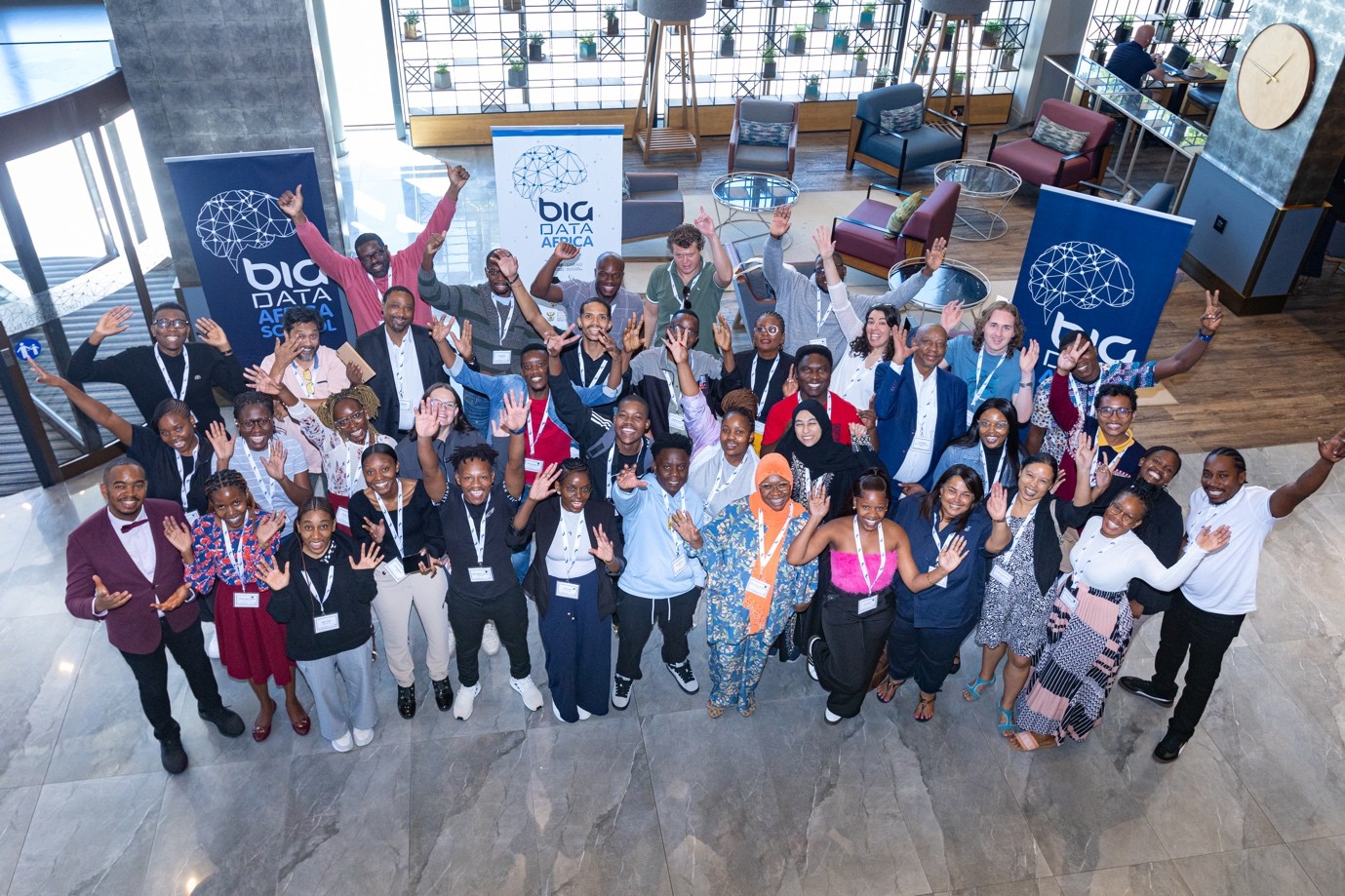
The 5th Big Data Africa School, funded by the UK’s International Science Partnerships Fund through the Development in Africa with Radio Astronomy (DARA) project, took place from March 10 to 14, 2025, in Cape Town, South Africa. DE Africa was present to provide mentorship and share expertise on the practical applications of Earth Observation (EO) data for real-world challenges.
The event brought together 25 students from across the continent, representing South Africa, Botswana, Ghana, Kenya, Namibia, Madagascar, Mozambique, and Zambia.
The week-long program was designed to equip participants with cutting-edge skills in Earth Observation (EO) data analysis, machine learning, and big data applications. On the first day, participants attended lectures that provided an overview of EO data and tools for analysis, machine learning for data science and the Digital Earth Africa platforms, a leading initiative transforming the accessibility of satellite data across Africa.
DE Africa’s Capacity Development Lead, Kenneth Mubea served on the panel of judges while Mpho Sadiki, one of DE Africa’s earth observation scientists, mentored students throughout the program.
Hands-on Projects: Solving Africa’s Challenges with AI and EO Data
The students formed five project groups, applying advanced machine learning techniques to address some of Africa’s most pressing issues. Their projects included:
Group 1 - Crop Mapping (Banana Plantations in Africa)
The winning project focused on mapping banana plantations in Uganda and South Africa. The team leveraged Google Street View for ground data, analysed it using QGIS, and utilized DE Africa’s platform to track crop phenology. Their model demonstrated potential for expanding the approach to mapping other crops across Africa.
Group 2 - Mapping Flood Extent
This project used DE Africa’s Sentinel-1 data and ESA land cover data to assess flood impact in Beira (Mozambique), Kaduna (Nigeria), and Upper West (Ghana). The team developed a deep learning model to predict flood likelihood, showcasing how EO data can mitigate disaster risks.
Group 3 - Urban Development Monitoring
Using DE Africa notebooks, this group mapped urban growth in Cape Town from 2017 to 2021, identifying trends in urban expansion, decline, and stability. Their findings highlighted the role of EO data in sustainable urban planning.
Group 4 - Mapping and Monitoring Mangroves and Peatlands
This group focused on mangrove forests in Lamu, Kenya, and peatlands in Durban, South Africa. Their analysis emphasized the importance of ground validation for accurate ecosystem mapping and conservation.
Group 5 - AI-Powered Weather Prediction
The final group implemented deep learning weather forecasting models using CHIRPS and TAHMO datasets. By comparing these models in Kenya, they demonstrated how AI can enhance flood prediction, particularly in the context of the May 2024 floods.
Exploring AWS and DE Africa’s Cloud Infrastructure
On the third day, students visited the AWS Skills Centre, where they explored various cloud-based programs, including DE Africa’s data repository hosted under the Amazon Sustainability Data Initiative (ASDI). This experience exposed them to the power of cloud computing in big data analysis and EO applications.

Figure 1: Group photo of the participants

Figure 2: Participants at AWS Skills Centre in Cape Town, South Africa


Figure 3: DE Africa engagements with AWS
A Collaborative Success
The 5th Big Data Africa School was a resounding success, thanks to the collaboration of DE Africa and partners such as Okala, the University of Stirling, and GeoAI-Africa. By equipping young African scientists with state-of-the-art tools and knowledge, the program continues to strengthen the continent’s capacity for innovative data-driven solutions.
As Africa embraces the era of big data, initiatives like these play a pivotal role in shaping the next generation of EO experts who will drive sustainable development and resilience across the continent.